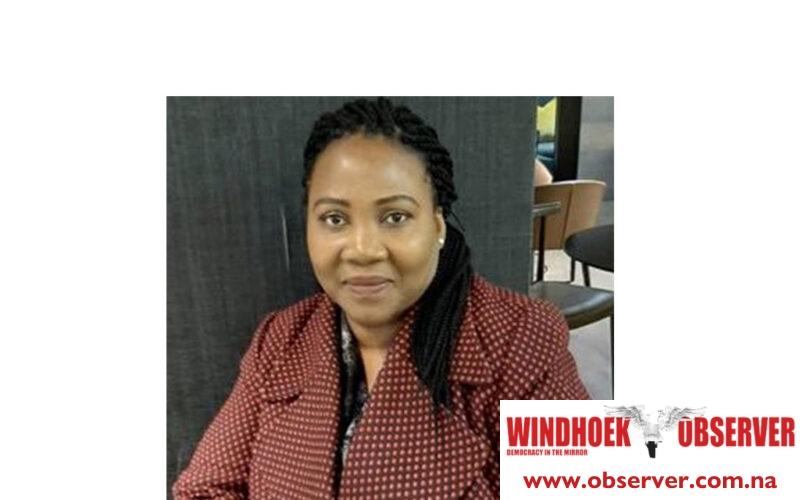Niël Terblanché
The Southern African Development Community (SADC) has called for a united and coordinated effort to tackle the increasing impacts of chronic droughts and intense flash floods that are exacerbating land degradation across the region.
Boemo Sekgoma, Secretary-General of the SADC Parliamentary Forum, stressed the critical role that members of Parliament must play in addressing these urgent environmental issues.
Delivering her message under the theme “United for Land: Our Legacy. Our Future,” Sekgoma outlined SADC’s strategic plan, which underscores the commitment of regional parliaments to develop measures for tracking and assessing vulnerability to drought.
The plan aims to strengthen institutions dealing with drought and develop effective mitigation mechanisms through legislative, oversight, and representative functions.
Sekgoma stressed the necessity of enacting and enforcing laws that promote sustainable land management to ensure the efficient and equitable use of land resources.
“By implementing rigorous oversight, parliaments can hold governments and other stakeholders accountable for policies and programmes aimed at combating land degradation,” she said.
Sekgoma stressed the importance of collaboration, urging a concerted effort involving communities, civil society organisations, the private sector, and international partners.
She called for the development and implementation of comprehensive strategies to address the root causes of desertification and drought.
These strategies include promoting sustainable agricultural practices, investing in reforestation and afforestation projects, and enhancing water conservation efforts.
Education and awareness were also highlighted as essential components in the fight against land degradation.
Sekgoma noted that by raising awareness about the importance of sustainable land management and the impacts of desertification and drought, citizens can be empowered to take action and contribute to the preservation of land resources.
“The actions we take today will determine the legacy we leave for future generations,” she said, urging member parliaments and partners to redouble their efforts in combating these pressing issues.
This year’s observance of the World Day to Combat Desertification and Drought is significant, marking the 30th anniversary of the United Nations Convention to Combat Desertification (UNCCD), the only legally binding international treaty on land management and drought.
Sekgoma reminded the governments of member states of the urgent need to address the challenges of desertification and drought, which are critical for the SADC region, affecting food security, water availability, and the livelihoods of millions.
The SADC Drought Risk Management and Mitigation Strategy 2022-2032 projects an increase in the incidence and intensity of droughts in the coming years.
During the 2021/2022 rainfall season, over 55.6 million people faced food insecurity due to El Niño-induced drought, underscoring the region’s growing vulnerabilities.
Pohamba Shifeta, Namibia’s Minister of Environment, Forestry, and Tourism, speaking in Eenhana at a commemoration ceremony of World Day to Combat Desertification and Drought, said that desertification, land degradation, and drought are among the most pressing environmental challenges of our time, with nearly half of the global land area already classified as degraded.
Shifeta praised the SADC’s commitment to sustainable land management, which he said is crucial for ensuring the stability and prosperity of billions of people around the world.
The minister pointed out that healthy land provides us with 95% of all food and is essential for shelter, livelihoods, and protection against worsening droughts, floods, and wildfires.
He noted that growing populations and unsustainable consumption patterns are putting excessive pressure on land resources, leading to degradation.
Namibia has demonstrated its commitment to addressing these issues through the establishment of a Sustainable Land Management Steering Committee and participation in global initiatives such as the Great Green Wall and the African Forest Landscape Restoration (AFR100).
Shifeta also referred to the fact that Namibia has developed a National Action Plan to guide land restoration and combat desertification, drought, and land degradation.
Namibia’s efforts include the ongoing Nationally Determined Contribution for Carbon emission reduction under the Paris Agreement, which involves tree planting and ecosystem restoration projects.
He said that these initiatives are expected to enhance tourism, wildlife recovery, food productivity, and water security while building community resilience against drought and reducing carbon emissions.
As part of its national strategy, Namibia has launched the Drought Relief Program and committed to donating 30 000 tree seedlings this year to encourage community participation in reforestation efforts.
Shifeta called on Namibians to engage in patriotic activities that contribute to land restoration and environmental protection.
He added that Namibians must participate actively in initiatives aimed at combating desertification and land degradation, stressing the importance of safeguarding the environment for future generations.




